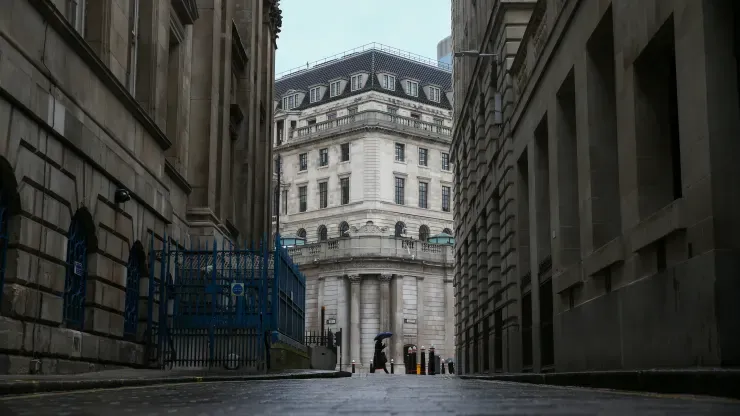Bank of England Raises Interest Rates to 14-Year High
Though it says inflation "is likely to have peaked," the Bank of England (BoE) on Thursday raised interest rates from 3.5% to 4% — a 14-year high — stressing that this hike was needed due to higher-than-expected private sector wage growth.

Facts
- Though it says inflation "is likely to have peaked," the Bank of England (BoE) on Thursday raised interest rates from 3.5% to 4% — a 14-year high — stressing that this hike was needed due to higher-than-expected private sector wage growth.
- Seven of the nine Monetary Policy Committee members voted to increase the Bank Rate for the tenth consecutive time, with the bank's minutes, however, showing a softer tone after previously suggesting it would respond "forcefully" to inflation.
- This decision, which is set to increase mortgage costs for millions of UK homeowners, comes in a bid to control inflation after it reached a record 11.1% in October.
- The BoE also updated its economic forecast, presenting a more optimistic outlook compared to three months ago. The recession in the UK is now expected to be much softer than previously expected thanks to lower gas prices.
- These predictions are slightly more pessimistic than the recent International Monetary Fund forecast that suggested the UK would be the only major world economy to shrink in 2023, performing worse than Russia. The country is predicted not to reach pre-COVID inflation levels until 2026.
- Meanwhile, the European Central Bank on Thursday also lifted rates by another half a percentage point, raising its benchmark interest rates to the highest level since 2008. Inflation rates in the 20 nations that use the euro eased in January, but remain well beyond the bank’s 2% benchmark.
Sources: Guardian, Sky News, Independent, New York Times, BBC News, and CNN.
Narratives
- Pro-establishment narrative, as provided by The Guardian. Though interest rates have been raised again — and output in Britain is still expected to shrink this year — prospects for the British economy are much better than in the immediate aftermath of Liz Truss's premiership. This measure may be seen as overprotective, but the UK's central bank deserves credit as it has been exceeding expectations while dealing with multiple shocks. Previous fears of a "Great Recession 2.0" should be replaced with hope.
- Establishment-critical narrative, as provided by The Telegraph. The Ukraine war, pandemic, supply chain chaos, and labor shortages have not helped Britain's economy over the past years, but it's inconceivable that the BoE still refuses to take responsibility for its own mistakes. The inflationary spiral affecting the UK was created much earlier than these shocks because interest rates were kept close to zero for too long. Central planners should be honest with the public when their mistakes lead to life-altering cost-of-living crises.






